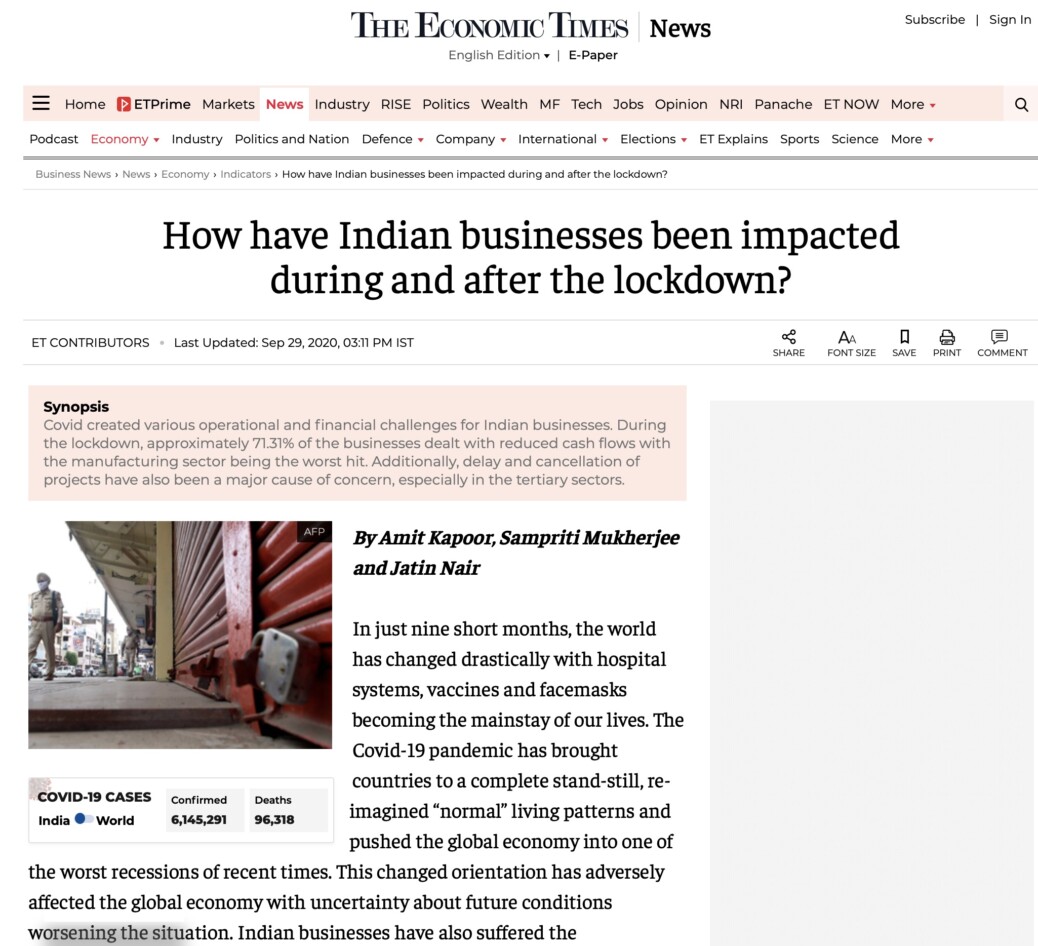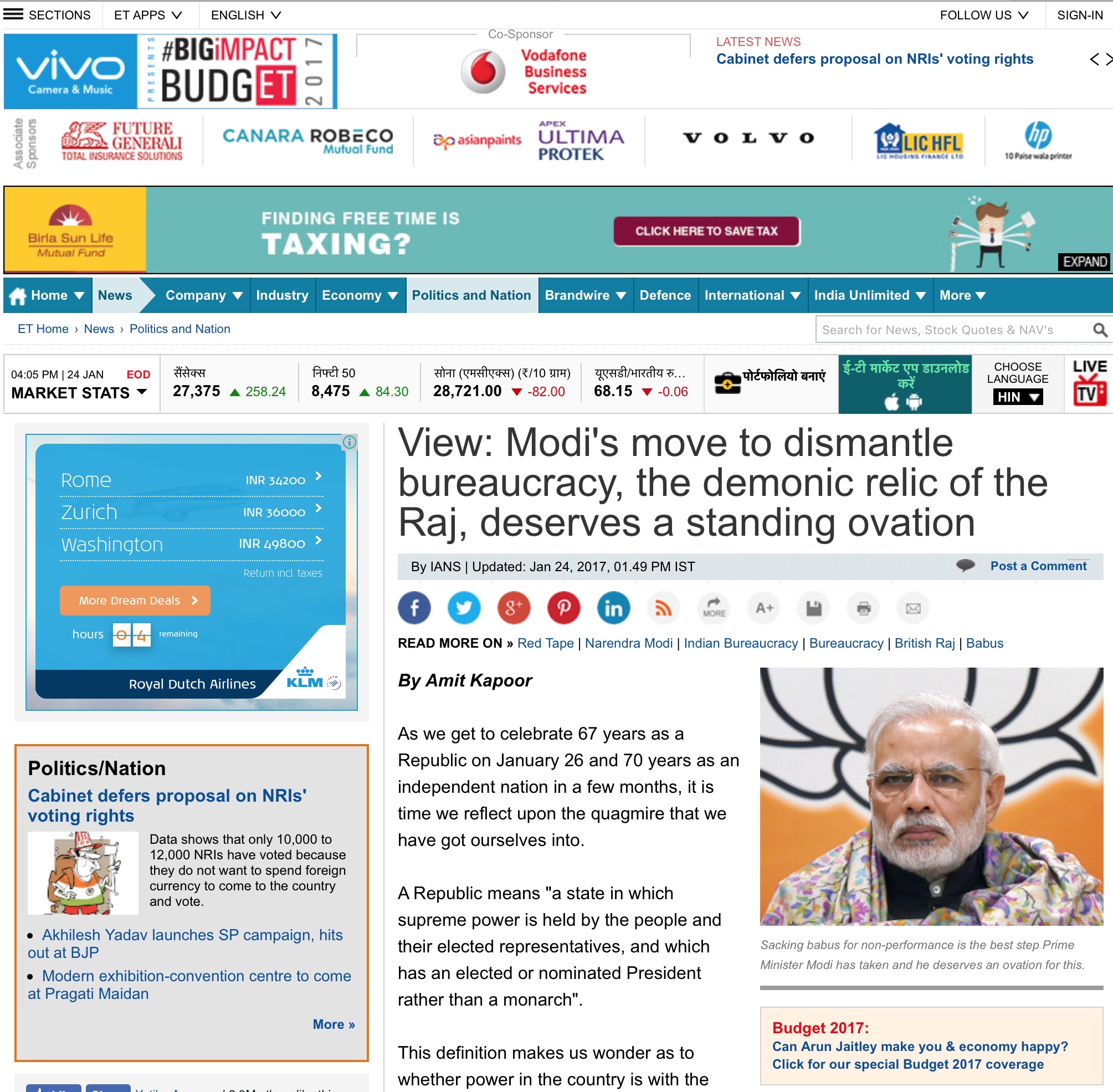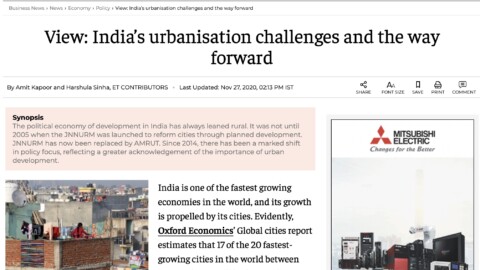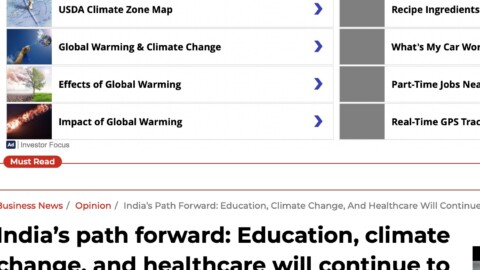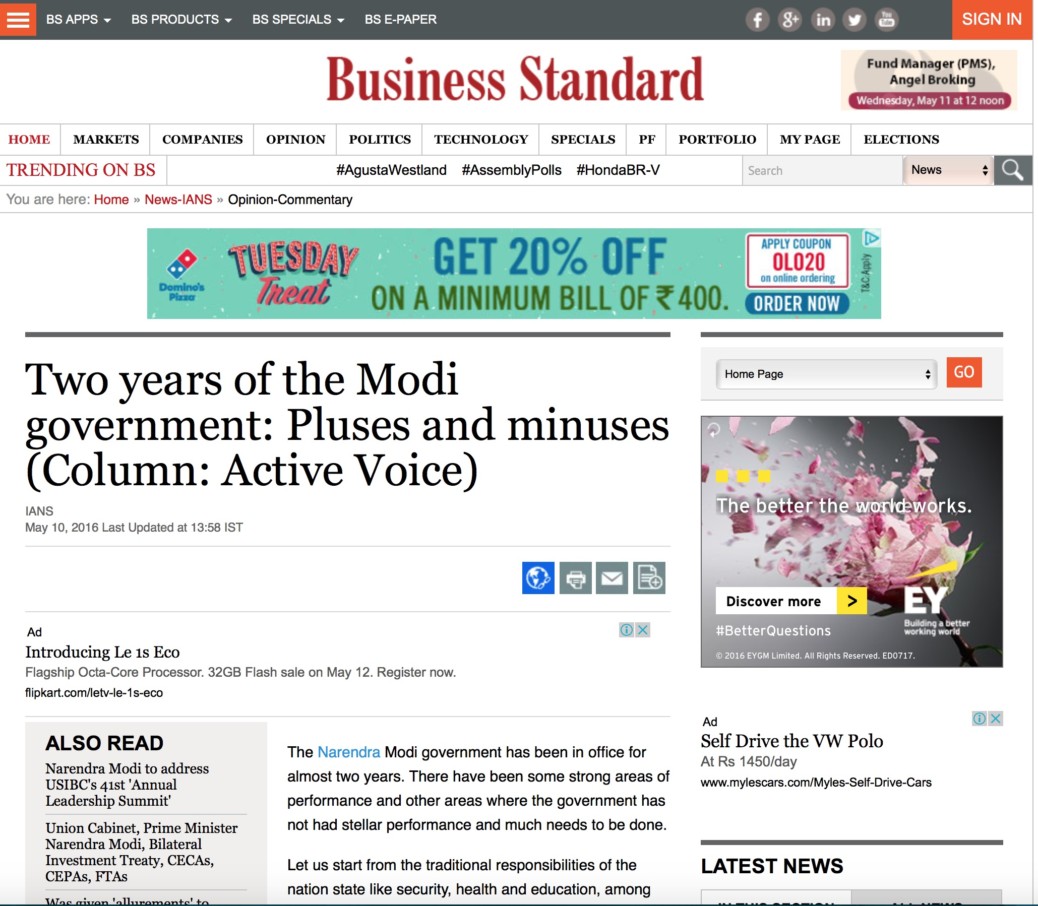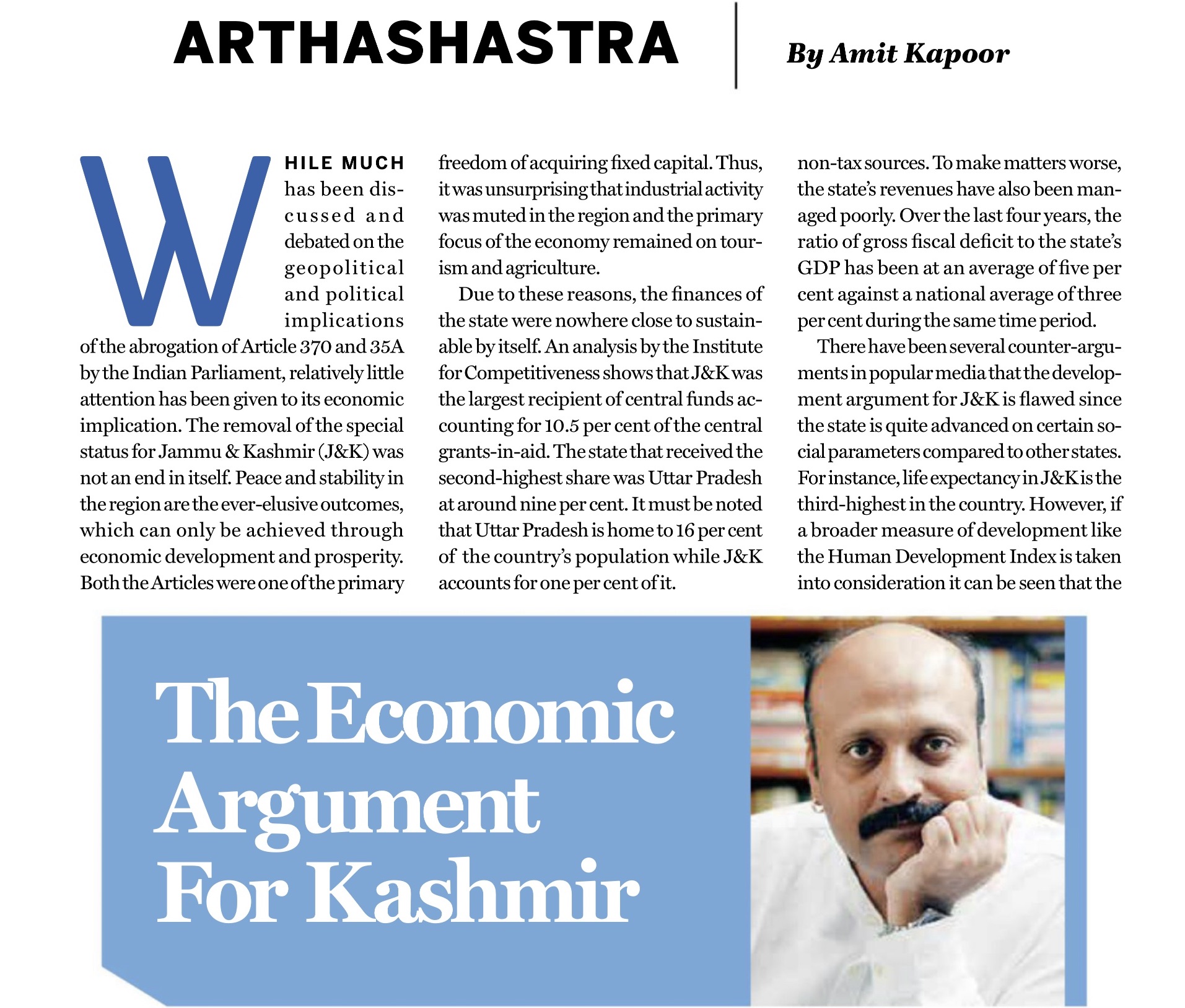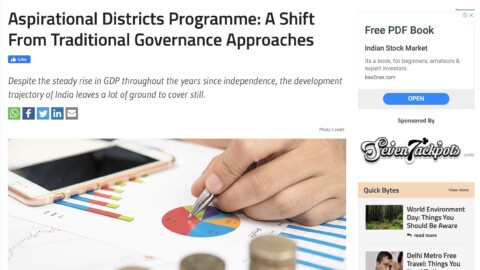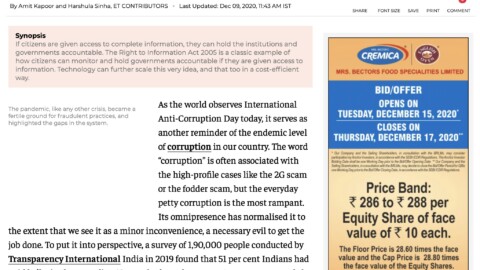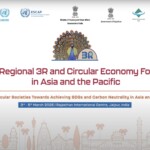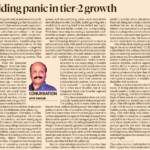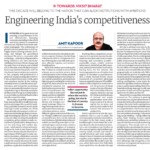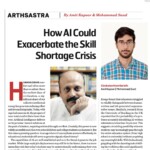Institute for Competitiveness and Times Network Business Perception Survey: How have Indian Businesses been impacted during and after the lockdown?
In just nine short months, the world has changed drastically with hospital systems, vaccines and facemasks becoming the mainstay of our lives. The COVID-19 pandemic has brought countries to a complete stand-still, re-imagined “normal” living patterns and pushed the global economy into one of the worst recessions of recent times. This changed orientation has adversely affected the global economy with uncertainty about future conditions worsening the situation. Indian businesses have also suffered the consequences of poor consumer demand, supply fluctuations and lockdown restrictions with them having to further walk on the tightrope of restoring their production systems as well as keeping their employees safe.
In such unprecedented times, it is crucial to synchronise the impact on businesses with the policy response by assessing the nature of the business impact due to the crisis. To do so, the Institute for Competitiveness along with Times Network has developed an in-depth Business Perception Survey that captures how the COVID-19 pandemic has disrupted business operations and what they expect the Government to do in response to it. The two-phase rollout of the survey – during the lockdown and after the lockdown helps us in understanding whether business prospects have improved over-time with Government’s announcement of various relief measures and economic revival strategies.
The findings of the survey reflect that the pandemic created various operational and financial challenges for Indian businesses. During the lockdown, approximately 71.31 percent of the businesses dealt with reduced cash flows with the manufacturing sector being the worst hit. Additionally, delay and cancellation of projects have also been a major cause of concern, especially in the tertiary sectors, particularly retail, non-profit, consultancy, education, and financial services. However, post-lockdown, the optimism in the respondents’ opinions is palpable – many businesses reported lesser projects being cancelled and the reduced problem of cash flow fall.
These challenges have taught businesses to adapt, causing them to tweak their long-term plans going in from lockdown to post-lockdown period. With regained trust in the market and targeted government actions, businesses have shifted away from short-term cost-cutting strategies – fewer cases of deferred payments (11.5%) and salary cuts (43%) have been noted in the post-lockdown period as compared to the lockdown period (19.4% & 57% respectively). Businesses are now thinking long-term by cutting down on operational costs such as marketing expenses and switching to low-cost raw material sources in the post-lockdown period. Nonetheless, dependency on virtual meetings has remained constant throughout the two time periods, implying that remote work might be the “new normal”.
Recognising the silver lining of this crisis, India Inc has worked in conjunction with the Government’s focus on “Aatmanirbhar Bharat”, to strengthen and embrace domestic supply systems. An overwhelming majority of businesses (90%) believe that the Government should focus on import substitution of essential commodities by pushing domestic production. However, this does not mean businesses are in support of a protectionist economic system – approximately 47 percent of the respondents felt during the lockdown that they would still like to maintain their links with the global value chains.
While these micro-aspects continue to affect the Indian business community, decisive action can only be taken when they are certain about the economic future. Survey findings show that the shift from lockdown to post-lockdown have led to changed opinions on the time it will take for the resumption of “normal” economic revival. Majority of the respondents now feel that resumption of normal business operations might get delayed to the next 12-18 months, instead of 6-12 months predicted during the lockdown. Additionally, regarding consumer demand, 90% of the firms believe that consumer spending has changed towards spending only on essential items. The businesses have also seemed to accept that this change in consumer demand will persist for about 1-2 years, indicating a more gradual path towards achieving the normal rate of consumption and investment levels.
The slight scepticism displayed by Indian businesses while indicative of the present economic uncertainty also presents the Government an opportunity to bolster the industry’s confidence through targeted policy solutions. To fast-track the road to recovery, businesses have suggested appropriate economic responses both short-term (6-12 months) and long-term (1-2 years). Across lockdown and post-lockdown, respondents have continued to focus on four major demands – in the short term, the size of the stimulus needs to be increased along with improved tax breaks. While the Finance Ministry has announced reforms to attain the above two suggestions, the firms still feel that more can be done to ease the businesses from tax-related obligations.
In the long term, Indian businesses want structural transformation of the economy by revamping education and health infrastructure along with undertaking labour reforms. For this, the Government’s actions on approving the New Education Policy 2020, passing the Labour Codes have gone a long way in regaining business trust. Timely income tax breaks to essential workers and specific manufacturing units looking to re-orient their businesses, along with these reforms could bolster consumer demand and innovation. Along with short-term policy actions, the Government could also fund more healthcare initiatives and developing decentralised healthcare monitoring systems.
With the slow but steady revival of India’s economy, the Government must use this crisis to instil trust in the business community and improve ease of doing business. Big-bang changes are no longer the way to go. Instead, incremental changes are necessary by improving the regulatory structure, increasing data access, and re-imagining the industrial cluster system to orient it to global standards will go a long way in pushing India ahead. It is only through concerted efforts, and reposing faith in domestic businesses can India shine again.
The article was published with Economic Times on September 29, 2020.
